2023-04-25 09:05
Apical’s Entry to Sustainable Aviation Fuels Takes Flight

Apical, through its renewable energy subsidiary Bio-Oils located in Huelva, Spain, has established a joint venture with Cepsa to produce second generation (2G) biofuels by constructing the largest plant in southern Europe. The alliance marks Apical's entry to the sustainable aviation fuels (SAF) market and a key milestone in RGE's strategy to produce a range of fuels to decarbonise aviation, maritime and land transportation. Apical, a leading vegetable oil processor, is a member of the Singapore-headquartered RGE group of companies.
The new plant, which is scheduled to begin operation in H1 2026, can produce up to 500,000 tons of SAF and/or renewable diesel annually, enabling the reduction of CO2 emissions by up to 90 percent, as compared to traditional fuels.
SAF is often viewed as a tool to a zero-emissions future. However, the key global challenge to the production of SAF is access to feedstock (renewable waste and residue raw materials). As a large global integrated processor of vegetable oils, Apical is able to efficiently and sustainably extract waste and residue from its supply chain and its processes in a transparent and traceable manner.
Through the joint venture, the plant will secure the majority of its feedstock supply from Apical's agricultural waste and residue through a global, long-term agreement. Cepsa will contribute its technical expertise and experience in the development of large industrial projects and fuel production; and knowledge of the European market and the decarbonisation goals of its customers in the transport sector. The facility will be located at Cepsa's La Rábida Energy Park in the Spanish province of Huelva.
Dato' Yeo How, President of Apical, said: "Apical's ample supply of high quality second generation feedstock is key to ensuring that the new joint venture delivers on our shared vision to reduce greenhouse gas emissions across air, sea and land transport. The wider use of SAF and renewable diesel provides significant benefits on a global scale, both in terms of mitigating the effects of climate change and promoting sustainable economic growth. Apical, through Bio-Oils, will ensure the supply of raw materials and contribute our own expertise in biofuels production."
The new facility will feature the latest technology for the production of second generation biofuels. Designed as a digital native plant, the new operation incorporates state-of-the-art technology including the latest industry advances in artificial intelligence, internet of things (IoT) and data analysis to maximise process efficiency, and ensure the highest standards of safety and environmental protection. By leveraging innovation, Apical is accelerating its sustainable operations in line with Apical2030's Pillar 3 (Green Innovation) of its strategic sustainability roadmap.
< Korea Shipping Gazette >
많이 본 기사
- “해양관광대국 초석 다진다” 해양레저관광협회 공식 출범CMA CGM, 美 항만운영사 설립…터미널 10곳 묶는다북극항로 민관협의회 출범 “9월 시범운항”해수부 출입 해운기자단, 해사신문 윤여상 국장에 감사패 전달KSS해운, BGN·태국석유공사와 VLGC 7척 장기계약‘부산 환적·광양 수출입’ 컨물동량 1%대 성장삼성중공업, 지난해 영업익 8622억 달성…12년來 최대정기선 HD현대 회장, 印 모디 총리 만나 합작조선소 건립 논의日 MOL, HD한국조선해양에 액화이산화탄소 운반선 2척 발주한진, ‘물류 바탕’ 전방위 ESG 경영 확산
- 인사/ 한국해양수산개발원케이조선, 5만t급 화학제품운반선 4척 수주…2900억 규모한국해양교통안전공단 이사장 공개 모집콜드체인協, 제11기 콜드체인관리사 양성과정 모집태웅로직스, 이천 풀필먼트센터 구축…이커머스 물류 진출목포해大 최부홍 신임 총장 “학생·지역·국가에 책무 다할 터”국제물류협회, 마이스터고 대상 ‘영마이스터 물류캠프’ 운영인사/ 해양수산부부산항 컨테이너 물동량 2488만TEU…최대치 경신엑소텍, 프랑스서 물류 자동화 행사 ‘엑소서밋 2026’ 개최
스케줄 많이 검색한 항구











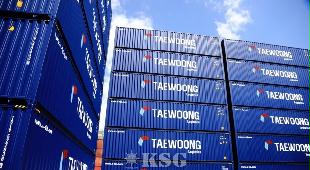

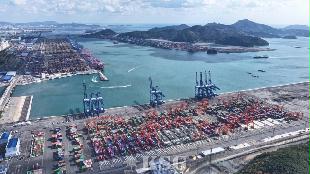
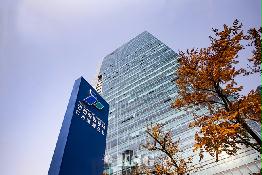








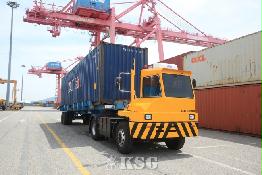


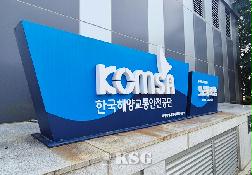
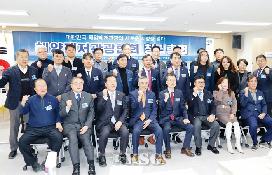



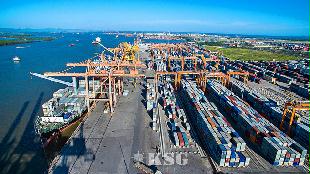
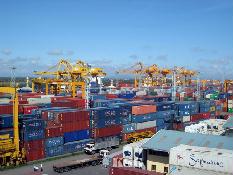










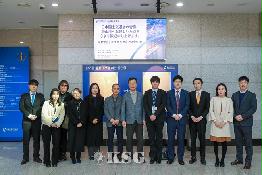




















0/250
확인